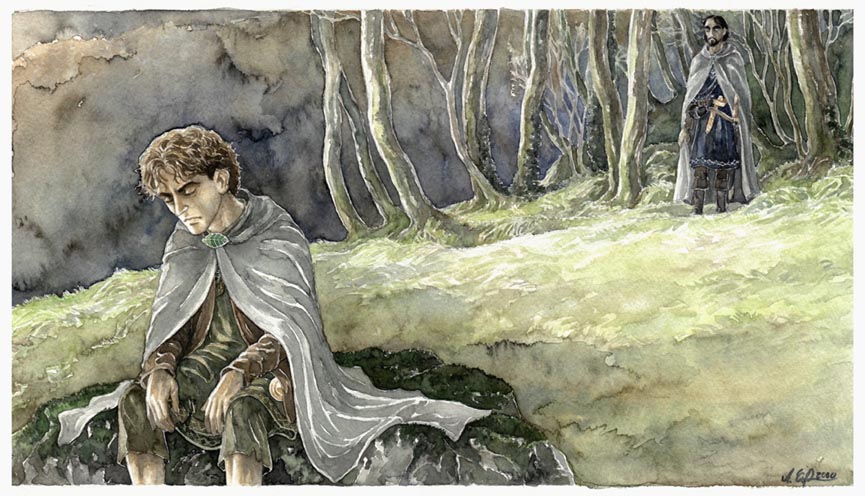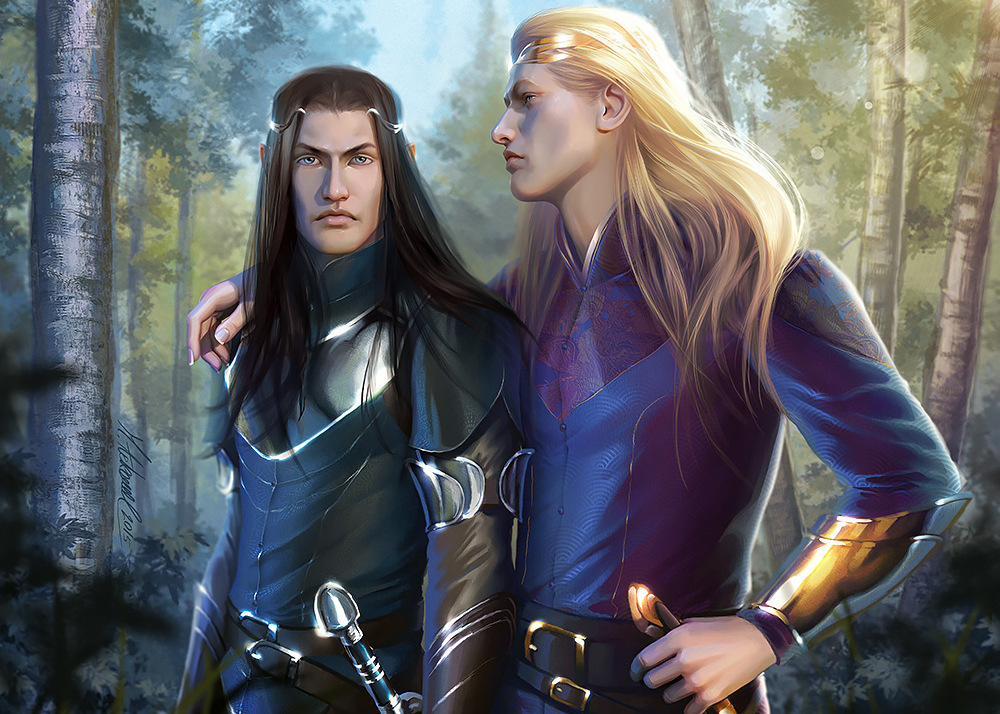The Fellowship of the Ring by J.R.R Tolkien (Harper Collins 1991) p.236
As readers of this blog will know I have come to the end of a long and careful reading of The Fellowship of the Ring and before I continue with The Two Towers I would like to do what the title of my blog speaks of. I would like to spend a few weeks thinking about the wisdom that we can find in Tolkien’s great tale. Perhaps it might help us as we ponder our own journeys.
I am not sure why I ended the quotation that is the title for this week’s reflection where I did. I am sure that my readers will recognise that the words quoted thre are those that are spoken by Elrond at the Council in Rivendell. They speak of how Dwarves, Elves, Hobbits, Men and a wizard have all arrived in the Halls of Elrond at this moment, one described as but a ‘nick’ in the long tally of time, but it is the right moment, even the last possible moment.

Elrond ponders the meaning of this council. He did not summon these people. Had he done so it would surely have been a meeting of the White Council, a meeting of the Wise. Galadriel would have been there, as would Círdan of the Grey Havens. And Saruman would have been its leader. The descendants of Númenor would not have been summoned, nor Durin’s folk, nor the people of the realm of Thranduil in the northern marches of Mirkwood. And hobbits would most certainly not have been invited.
So is it merely a matter of chance that has brought Glóin from the Lonely Mountain of Erebor to Rivendell with Gimli his son? Or Legolas, the son of Thranduil from his land? Or Boromir from Minas Tirith; or a small group of hobbits from the Shire with their guide, Aragorn, the heir of Isildur?
Elrond chooses his words with care. “By chance as it might seem.” By using this word, seem, Elrond deliberately draws a distinction between those things that merely appear to us, like traffic passing by on a busy highway, and something of a deliberate purpose. Actually, if we were to ponder the deliberate purpose behind every one of the journeys being taken by those travelling down a particular highway on any given day, we might be able to discern and then tell a story in which each of those participants would have a part to play. The song, “Another Hundred People”, from Stephen Sondheim’s show, “Company”, comes to mind here and that tale is rather beautiful.
So Elrond chooses not to end with chance. “Yet it is not so,” he continues. “Believe rather that it is so ordered that we, who sit here, and none others, must now find counsel for the peril of the world.” Elrond chooses to speak of belief. By this he does not mean an assent to certain doctrines. He encourages his guests to accept that their presence in his halls, at this precise moment, this “nick of time”, is a part of a big story in which each one of them has a part to play.
We might want to say at this moment that it is the unseen presence of The Ring that gives significance to the whole proceeding. Certainly, if it were not for The Ring there would be no hobbits present. I wonder if Boromir had this thought in mind when he cried out to Frodo, “It is not yours save by unhappy chance. It might have been mine. It should be mine.” Frodo made a similar statement when he bemoaned the seemingly cruel fate by which he has come to be in possession of The Ring. Gandalf’s response was that “Bilbo was meant to find the Ring, and not by its maker. In which case you also were meant to have it. And that may be an encouraging thought.”

Neither Gandalf, nor Elrond, choose to give themselves to lengthy metaphysical speculation about such matters. They receive encouragement from the thought that there seems to be a power for good at work in the world, one that put the Ring of Power into the hands of first Bilbo and then Frodo, neither of whom had any interest in power for its own sake; and one that has gathered this particular company of people together in Rivendell at this moment. Frodo is not encouraged by either of these things. As we saw last week, he simply accepts that he has been given a job to do and that is enough.






















